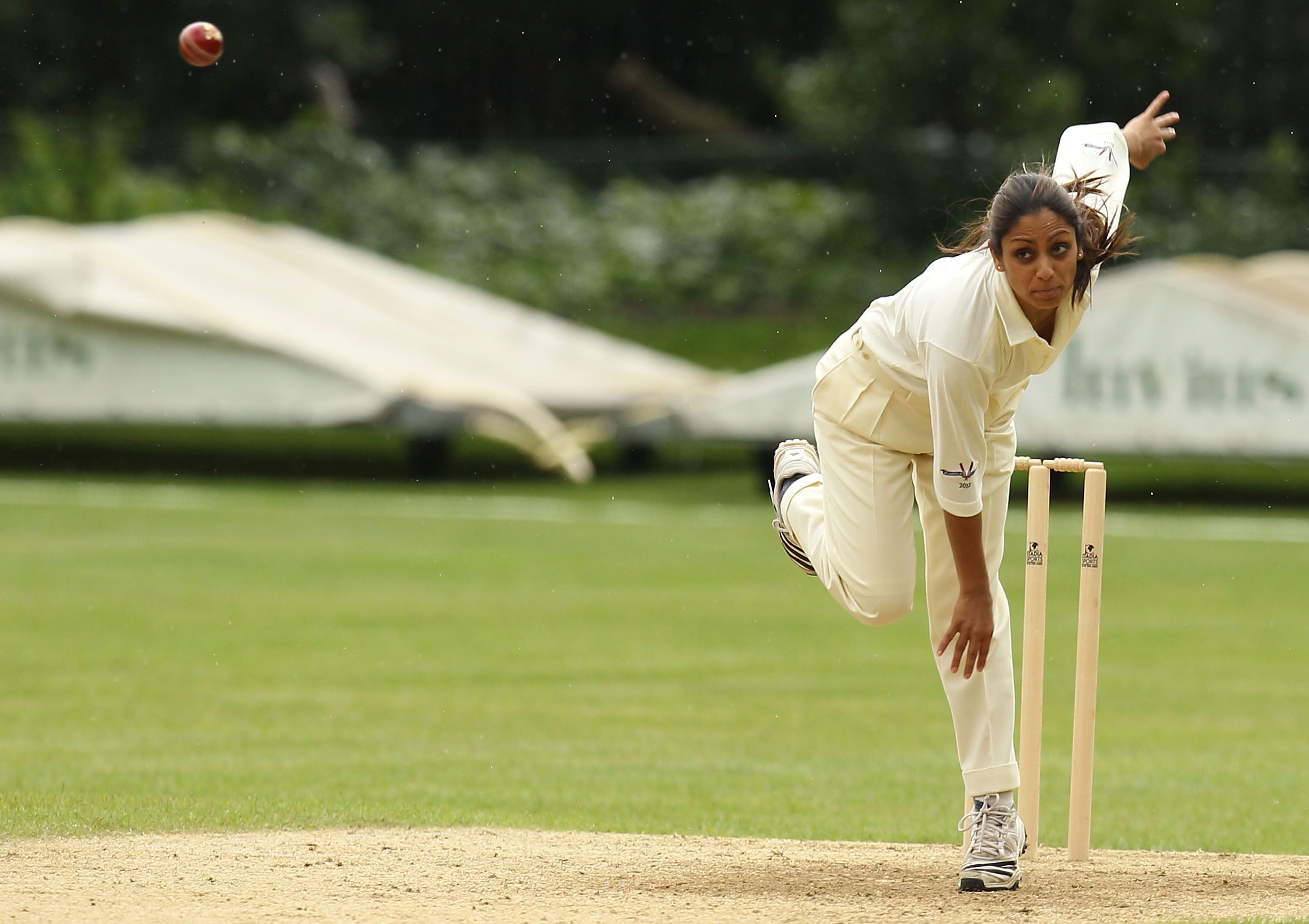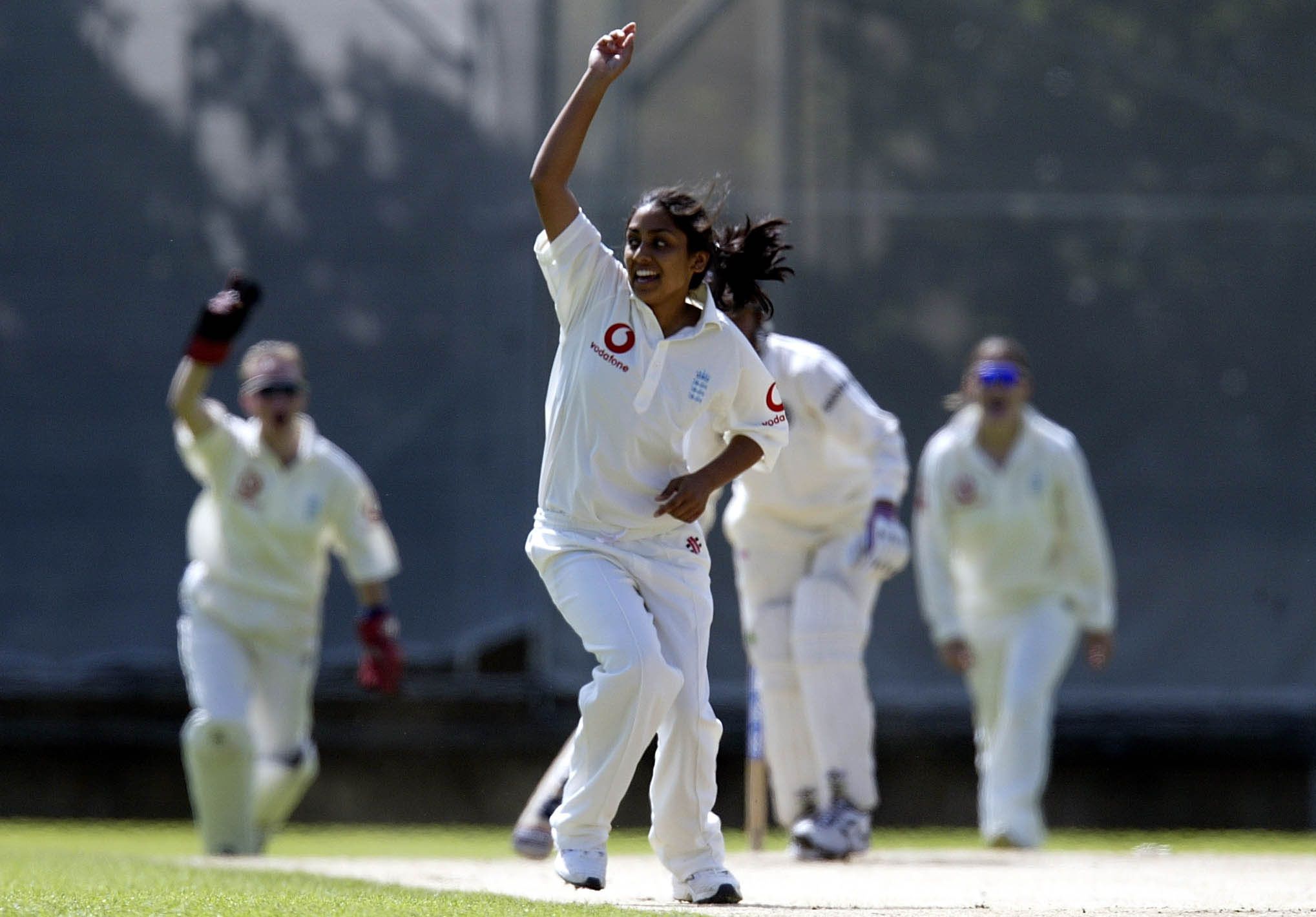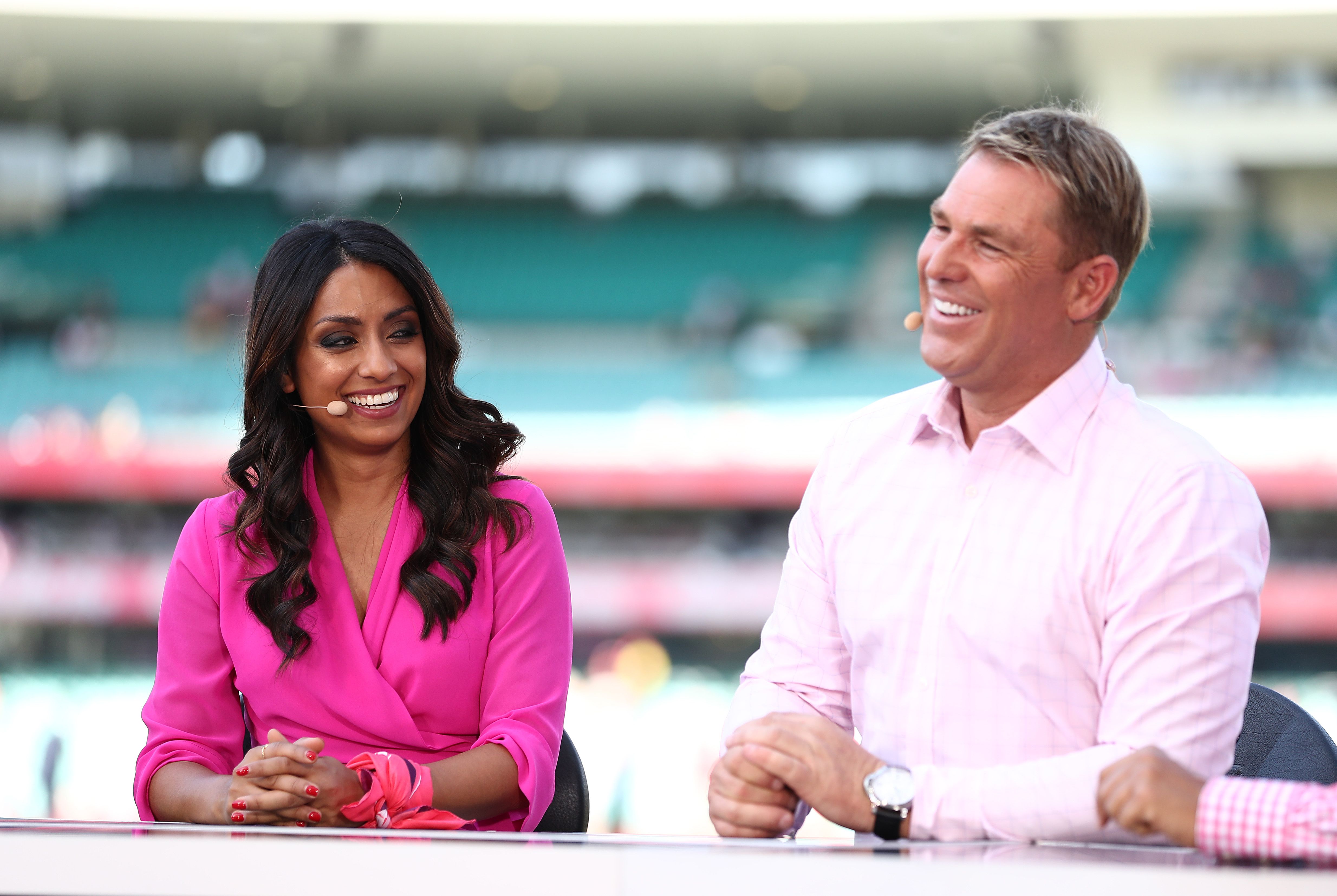This week’s guest on The Game Changers podcast is Isa Guha, a former England cricket international turned commentator and broadcaster.
Throughout her career both on and off the pitch, Guha has been a trailblazer and has helped shape the landscape of women's cricket.
In 2002, she became the first woman of South Asian origin to represent England in sport. Now, as the first woman on the Professional Cricketers Association board, she continues to help make important changes in the sport that has been her life since a young age.
Guha was just 17 years old when she made her England debut and she went on to enjoy a ten-year career, winning the 2009 ICC Women's World Cup, Women's World T20 and three Ashes Series.
Cricket in the blood
Cricket was always a part of Guha's family life growing up — it was “in her genes” in fact. Her mother and father are both from India, so the sport was a hot topic in the family home.
She described the "classic story" of growing up playing cricket in the garden with her older brother, using milk bottles as crates and breaking many a window as she learned to both bowl and bat.
Like many other female athletes across the majority of sports, Guha started off playing on boys’ teams. While she admitted there were "a few raised eyebrows" during this time, she embraced the opportunity to be taken out of her comfort zone.
There was initial reluctance from her father in the beginning, but he soon became one of her biggest and loudest supporters.
"He set up a women's section there [High Wycombe]. He tried to find a club for me to play for, which was a women's club, so I could progress."
Remarkably, Guha started playing with the seniors when she was just nine years old. She made her debut for Thames Valley U21s at 11 years of age, followed by her debut at Berkshire at 12 years old — these are the two teams she established herself at before embarking on her decorated career as an England international.
Isa Guha in action during the Flannels For Heroes Charity Cricket Event at Burton Court on June 15, 2012 in London, England. (Photo by Tom Dulat/Getty Images)
An England trailblazer
Guha made her England debut in 2002 against India during their test tour — she was still a teenager when she pulled on the jersey of her nation.
Playing against India is something Guha has always enjoyed because of her family roots, and she described those matches as "special memories." But despite being proud of her family heritage, she always knew she wanted to represent England, having grown up and blossomed as a player there.
Guha played as a right arm fast-medium bowler and in 2008, she reached number one status in the ICC Women's One Day International rankings.
A year later, she recorded the highlight of her career when she helped England win their third World Cup. They beat New Zealand by four wickets in the final held at the North Sydney Oval in Australia. Their triumph marked the first time they had won the tournament since 1993.
After just ten years, Guha called time on her career and announced her retirement in 2012.
Isa Guha of England celebrates after bowling Jaya Sharma of India August 11, 2002 during the England v India one day international played at Beaconsfield Cricket Ground in Buckinghamshire, Great Britain. (Photo by Scott Barbour/Getty Images)
"It was hard at the time because I felt like I was letting people down and I felt like I was stepping away from something that I truly loved, but it all kind of came together at the same time," she explained.
"I can say that I left the game in a good space mentally which I am really grateful for because I know a lot of players that leave and they feel that things are unfinished."
Guha revealed she didn't start making money within the sport until she stepped away from her playing career and embarked on a new chapter within media. She admitted that she wouldn’t have retired so soon had the game been professional during her playing days.
"I probably also [would have liked] the ability to have a break and come back. I just didn't think that was an option for me. So I think it's a lot better managed these days and that can definitely enhance longevity."
SYDNEY, AUSTRALIA - JANUARY 05: Fox Cricket presenters Isa Guha and Shane Warne during day three of the Fourth Test match in the series between Australia and India at Sydney Cricket Ground on January 05, 2019 in Sydney, Australia. (Photo by Ryan Pierse/Getty Images)
Guha is now an integral part of the Fox Cricket coverage in Australia and has also provided BBC coverage for UK viewers.
She recounted a core memory which made her realise just how much women's cricket has grown and how fortunate she was to experience milestone moments.
She was broadcasting live from the Women's Twenty20 Cricket World Cup at the Melbourne Cricket Ground in front of a packed out 86,000 crowd.
"I remember being there with Mel Jones and Alex Blackwell, two Australian cricketers. Mel’s a very close friend and Alex as well — and we were stood next to each other watching Katy Perry open the show and we were so involved in what was going on around us, and all we could think about was 'what is happening?!' and thinking about all those that had gone before to get to a point now where we're able to have events like that.
"I remember we just got so lost that we forgot to be on air."
Paving the way for South Asian women
Guha is a role model for all women looking to get into cricket, but particularly those from South Asia.
As the first South Asian female player to represent England, she currently holds the torch for other girls and women like her looking to break through. However, despite the growth in the game over the last 20 years, Guha has acknowledged there is a "limited number" of girls from South Asian backgrounds coming through into an England team.
"So, after me [there's] Sonia Odedra, and that's it. So you start to question, well, actually, maybe I was an exception and why was I the exception? What are the barriers? And this is what we're trying to understand, it's something I've been very passionate about since I started playing.
"When you talk about the reasons why someone doesn't take up a sport, we can't look at the superficial reasons — you know, the same old reasons that everyone goes back to, which is, 'I didn't have enough support from parents' or 'my parents wanted me to be a doctor.'
"Yes, that has been a traditional mindset, but it's more than that — it's getting down to the detail. I can be very open and say I don't think we talk about menstruation enough in sport. Certainly with South Asians, it is a taboo subject.
SOUTHAMPTON, UNITED KINGDOM - AUGUST 25: Isa Guha of England celebrates her Player of the Match award during the Natwest Women's One Day International match between England and India at the Rose Bowl on August 25, 2006 in Southampton, England. (Photo by Ben Radford/Getty Images)
"I actually started my period pretty early, and it was really difficult trying to navigate that and play sport — especially when you're wearing whites — but it's something that you feel you can't really talk about.
"It was something I didn't really talk to my mum about, in terms of wearing tampons and things like that. So, you know, these are the sorts of barriers that I'm talking about."
As a trailblazer on the pitch and now a prominent figure in broadcasting and presenting, Guha is helping to make playing cricket in England a more accessible path for girls from a similar background to her.
She has highlighted the large number of South Asian girls and women playing country cricket, but has urged more to be done about finding a way to carve the next step up.
"I think removing those barriers [and] making it more inclusive is really important. And hopefully we'll see that flourish going forwards and with programs like Ace as well, it's really addressing the need to bring people from different backgrounds through."
This article was produced in partnership with The Game Changers podcast, which is supported by Sport England. You can listen to the full episode with Isa Guha here.























